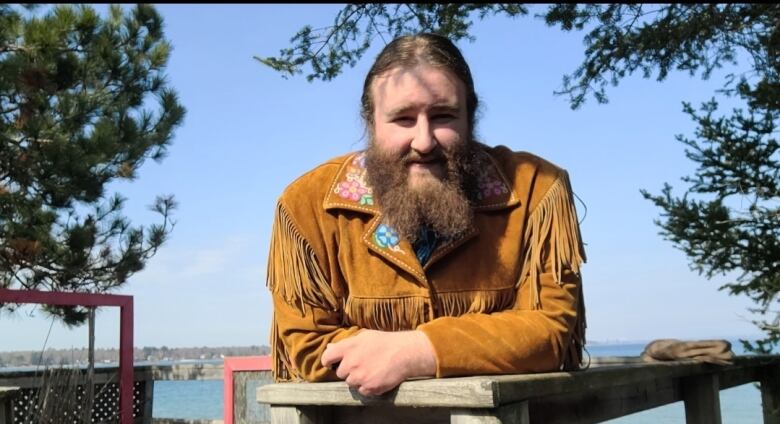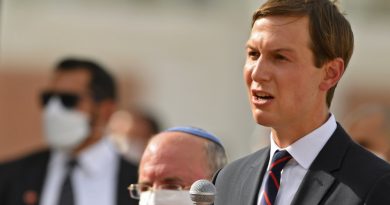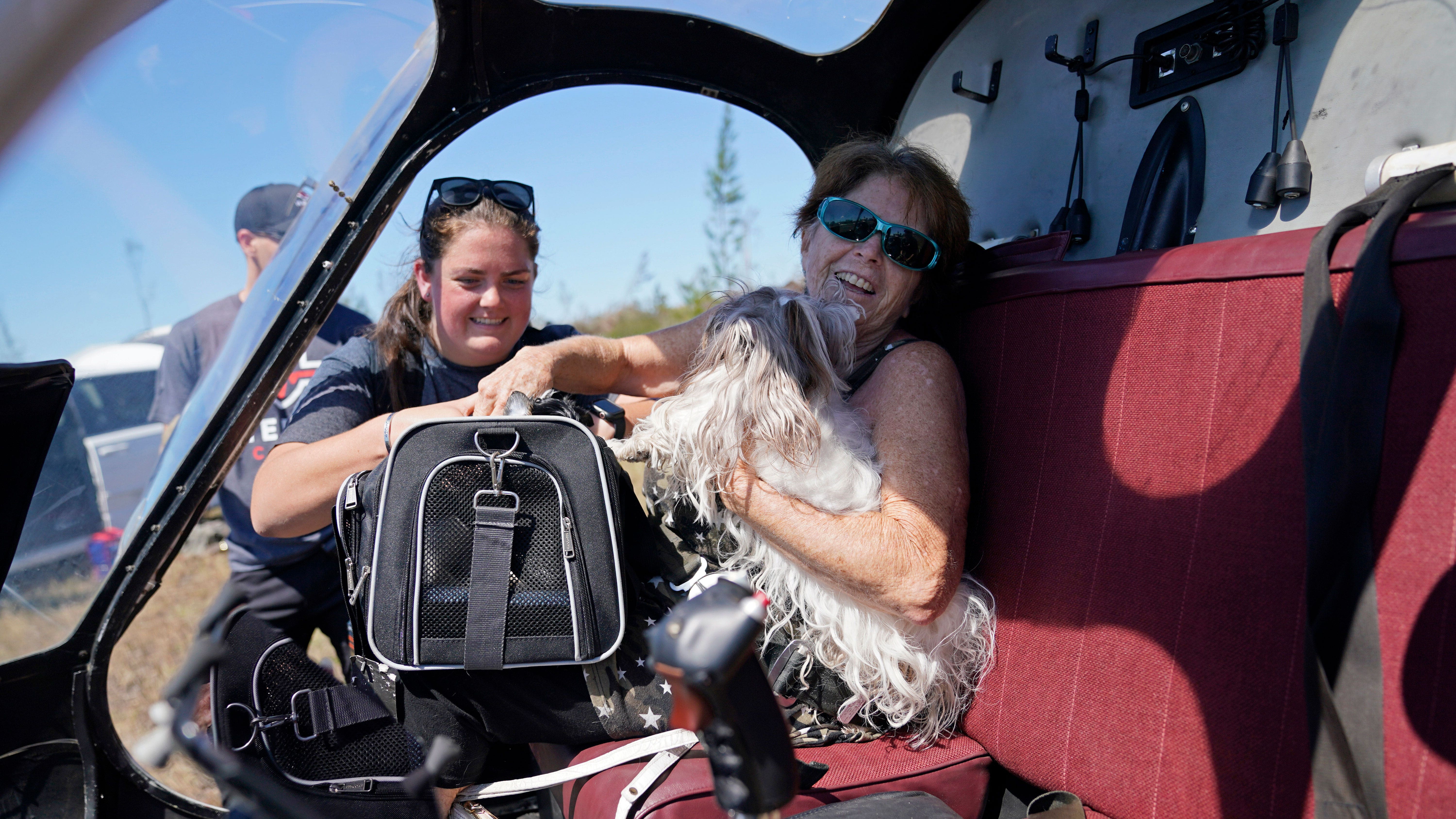St. Anne’s residential school survivors express mixed feelings about Pope meeting with Indigenous delegates
WARNING: This story contains distressing details.
All eyes will be on the Vatican this week when Métis, First Nation and Inuit delegates meet with the Pope and other church officials, in part to seek an apology for the Roman Catholic Church’s role in running residential schools in Canada.
But Edmund Metatawabin won’t be paying close attention. He’s among survivors of St. Anne’s Indian Residential School, which operated in Fort Albany, Ont., from 1902 to 1976.
St. Anne’s history is marked with stories of physical and psychological abuse at the hands of the priests and nuns who ran the institution. Metatawabin has written a book about his own experiences at St. Anne’s, where he was forced to be for eight years, starting in 1956 when he was six years old.
He said he and many other survivors see little value in a papal apology.
“We’re not really interested in that kind of activity. We’ve seen their [Catholic Church officials’] hearts and they’re not very bright in terms of purity. Black hearts,” said Metatawabin, who’s in his 70s.
Metatawabin said that for him, the path to healing is through reconnecting with history and stories — and he has little time for trying to make connections with the Catholic Church.
Survivor wants more records released
Evelyn Korkmaz was at St. Anne’s for four years starting in 1969, and now lives in Ottawa and is an advocate for survivors. Like Metatawabin, she said she doesn’t need to hear an apology. However, she hopes it is issued nonetheless.
‘I’m sorry’ is not going to bring back the children that are buried … in the unmarked graves.– Evelyn Korkmaz, St. Anne’s residential school survivor
“Some survivors need to hear the apology. But for me it’s, you know, I don’t need to hear ‘I’m sorry.’ It’s a little too late. And ‘I’m sorry’ is not going to bring back the children that are buried … in the unmarked graves,” Korkmaz said.

Korkmaz hopes the delegates’ visit will lead to accessing more records related to residential schools.
The Missionary Oblates of Mary Immaculate has agreed to open its Rome archives to the National Centre for Truth and Reconciliation (NCTR). The Oblates ran 48 residential schools in Canada, including St. Anne’s.
Raymond Frogner, head of archives for the NCTR, said earlier this month that the centre has been negotiating to access the personnel files of priests and residential school staff who are still alive — files that the Oblates had sought to exclude.
“The dead can’t commit any more crimes. They’re dead. It’s the ones that are still walking around and being transferred to the different organizations or churches that are continuing to do harm,” Korkmaz said.
1 Métis delegate from Sault Ste. Marie
There is one delegate from northeastern Ontario in Rome for the Vatican meetings.
Mitch Case of Sault Ste. Marie is a regional councillor with the Métis Nation of Ontario and is part of the Métis National Council’s delegation.
He has worked with residential school survivors for much of his career, and said he feels “a real sense of responsibility” heading into the meetings in Rome with church officials.
Like Korkmaz, he knows an official apology would be meaningful to many survivors, but he also hopes to see concrete action.

“Getting through to the Pope is one thing but the reality being that the church is a spiritual institution, but it is also a political and bureaucratic institution, and we have to work with the whole of the system to try to make change,” Case said. “And so hopefully those meetings will lead to the agreement to release records, agreement to financial support for survivor organizations and those processes, and the return of artifacts and articles that are in the Vatican museum and archives.”
Church ‘has broken many people’s hearts’: MP
Charlie Angus, MP for Timmins-James Bay in Ontario’s north, said it’s not up to him to say whether residential school survivors should accept a potential papal apology or see value in a visit to the Vatican, and he understands why some would not.
However, he hopes the visit will lead to an apology, and action, like the church paying money promised in the Indian Residential Schools Settlement Agreement (IRSSA).
In the landmark 2005 agreement, the Catholic Church agreed to make a lump sum $29-million cash payment, but about $5 million of that amount was spent on legal fees and administrative costs. It also promised to provide $25 million of “in-kind services” and to give its “best efforts” at fundraising $25 million for survivors — but after a decade, came up more than $21 million short.

“I think that the Catholic Church in Canada has broken many people’s hearts by its desire to protect its own interests, to protect its financial interests. It has broken so much trust with the people in the pews,” Angus said.
As a Catholic himself, Angus said he has “real serious issues with many of the things the church is doing, but I was taught some good values growing up of social justice and solidarity, and I’d like to see the church practise that at this time.”
Reconnecting with land, traditions
In Fort Albany, Metatawabin is spending his time these days focusing on his culture and Cree traditions — reclaiming what was lost for him and so many others during their years at St. Anne’s.
We’re trying to recover our language and activities back on the land.— Edmund Metatawabin, Ontario residential school survivor
Metatawabin said the community is working hard to teach young people their history. He’s much more interested in that path of healing than focusing on what the Catholic Church has to say.
“We lost too much in terms of language, identity, spirituality. And then somebody says, ‘I’m sorry.’ Well never mind. We have no time for you. We’re trying to recover. We’re trying to recover our language and activities back on the land.”
_______________________________________________________________________________________________
Support is available for anyone affected by the lingering effects of residential school and those who are triggered by the latest reports.
A national Indian Residential School Crisis Line has been set up to provide support for residential school survivors and others affected. People can access emotional and crisis referral services by calling the 24-hour national crisis line: 1-866-925-4419.




